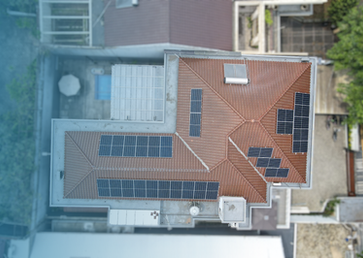
Regulatory Support for Rooftop Solar Installation in Indonesia
Published
Oktober 1, 2024
Updated
Oktober 1, 2024
Indonesia has made significant strides in supporting the adoption of renewable energy, including rooftop solar installations, as part of its commitment to reducing carbon emissions and promoting sustainable energy. The government has introduced various regulations to make it easier for businesses and homeowners to install and benefit from solar power systems. One of the key pieces of legislation for rooftop solar is Permen ESDM No. 2/2024, which provides clear guidelines and incentives for solar energy adoption.
Permen ESDM No. 2/2024: Key Highlights
Permen ESDM No. 2/2024, officially known as the Minister of Energy and Mineral Resources Regulation No. 2 of 2024 on the Utilization of Rooftop Solar Power Plants (PLTS), was issued to simplify the process and enhance the regulatory framework for rooftop solar installations. Some important provisions include:
-
Net Metering Scheme: The regulation allows for a net metering system where excess electricity generated by rooftop solar panels can be sold back to the grid. This enables customers to offset their electricity bills by generating their own power, contributing to the national grid, and receiving compensation for surplus energy.
-
Simplified Permitting Process: The regulation streamlines the permitting process for rooftop solar installations, reducing bureaucratic barriers and making it easier for consumers to connect their solar power systems to the national grid.
-
Incentives for Solar Installation: The regulation offers financial incentives and a clearer regulatory framework to attract both residential and commercial installations. It helps lower the costs associated with solar adoption by providing incentives for the installation of rooftop solar panels, which is especially important for businesses and homeowners.
-
Standardization of System Design: It establishes guidelines for the design, installation, and operation of rooftop solar power systems to ensure safety, efficiency, and reliability.
SLO PLTS (Surat Laik Operasi): Ensuring Safety & Compliance
An important aspect of the regulatory framework is the SLO PLTS (Surat Laik Operasi), or Certificate of Feasibility for Operation. This certification is required for the operation of a rooftop solar system that is connected to the grid. The SLO PLTS ensures that the solar installation complies with local technical and safety standards, which are critical for both the safety of the system and the protection of the national grid.
-
What Does SLO PLTS Involve?
The SLO is issued after a licensed installer verifies that the rooftop solar system has been correctly designed, installed, and complies with electrical standards. It confirms that the system is safe to operate and that it meets the required technical specifications for grid connection. The certification process helps mitigate risks associated with electrical malfunctions, ensuring both the system's functionality and the safety of the building.
-
Who Issues the SLO?
The SLO PLTS is issued by an accredited institution or an authorized certifying body, usually after the installation is inspected. The SLO must be obtained before the system can be officially connected to the grid and begin generating and potentially selling electricity back to the utility.
Conclusion
Indonesia’s regulatory framework for rooftop solar installation, underlined by Permen ESDM No. 2/2024 and the SLO PLTS certification, is designed to encourage the widespread adoption of solar power while ensuring safety, efficiency, and reliability. With net metering, simplified processes, and safety certifications, Indonesia is making it easier for both residential and commercial users to harness the power of the sun, contributing to the country’s renewable energy targets and its broader sustainability goals.
Explore More at The Clean Energy Learning Center
Discover the latest updates and expert advice from SMSolar. Read on and invest wisely.
We Would Like to Hear From You








